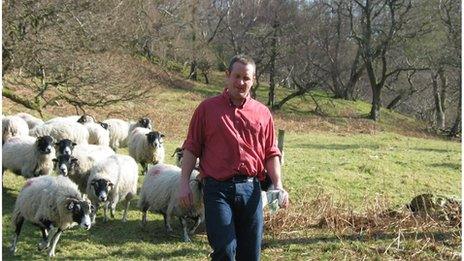Soldiers to restore Haweswater peat bog to help wildlife
- Published
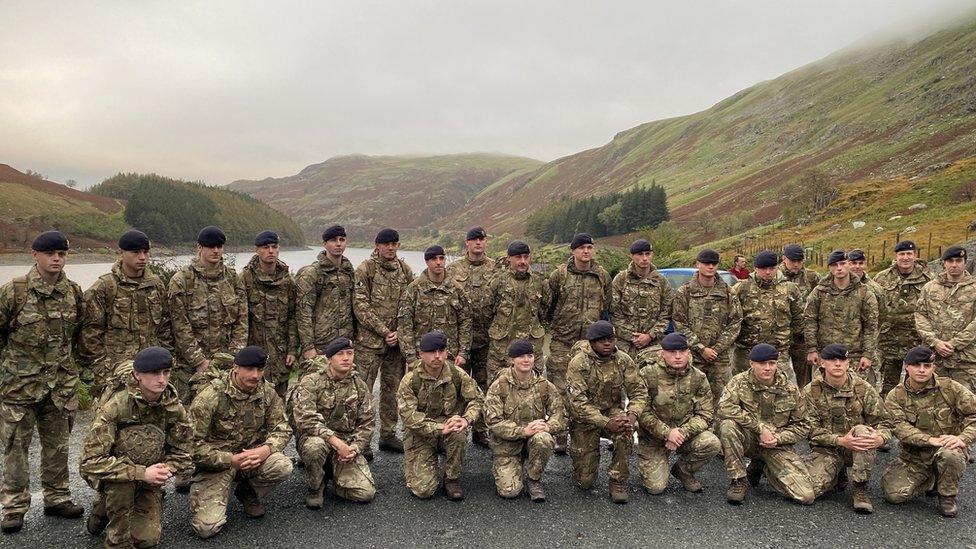
The military strength of the Light Dragoons has been welcomed at Haweswater
A team of 30 soldiers will use their engineering expertise to re-wet a Lake District peat bog in a bid to boost wildlife.
The soldiers will move several boulders and earth at the bog in the Riggindale Valley so water can be held in place to "reinvigorate" it, the RSPB said.
Peat bog drainage has historically occurred in upland areas, primarily for agricultural purposes.
The RSPB said it was grateful for the Army's "collective strength".
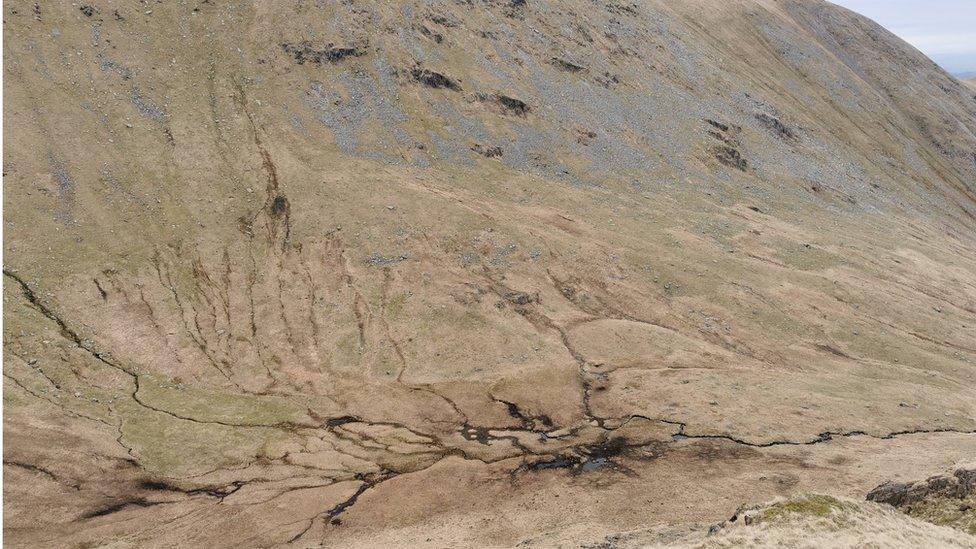
The peat bog lies in an area which is not easily accessible
The Haweswater site of woodland, moorland, farmland, river and meadows is managed by the RSPB and United Utilities.
With only three RSPB wardens, the prospect of re-wetting the bog alone was not considered possible due to the amount of work involved and the cost of "prohibitively expensive" machinery, the charity said.
"But with 30 soldiers to lend both engineering expertise and their collective strength it will hopefully only take a day to complete this mammoth task," warden Richard Smith said.
Major Sean Mackey of the Light Dragoons, who lives locally, said: "When the Army's annual green initiative was coming round again this year, I saw a golden opportunity to contribute."
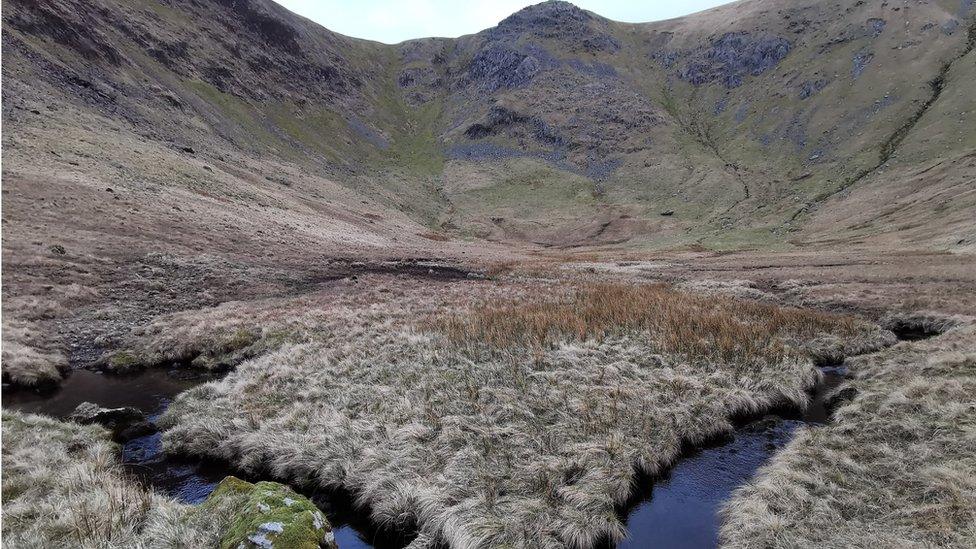
The peat bog at Sale Pot will be transformed into a flourishing wetland
The soldiers will work at Sale Pot where they will move several huge boulders and 1,000 natural bags of earth to turn the dry area into a flourishing wetland.
The area around the reservoir is home to a host of upland wildlife, including pied flycatchers, redstarts, and sandpipers as well as red squirrels, alpine plants and ancient oak trees.
John Gorst, Catchment Partnership Officer for United Utilities, said the Army's involvement would help previous work carried out "to improve drinking water, slow the flow during high rainfall, and increase the wildlife and biodiversity that relies on this internationally important habitat".
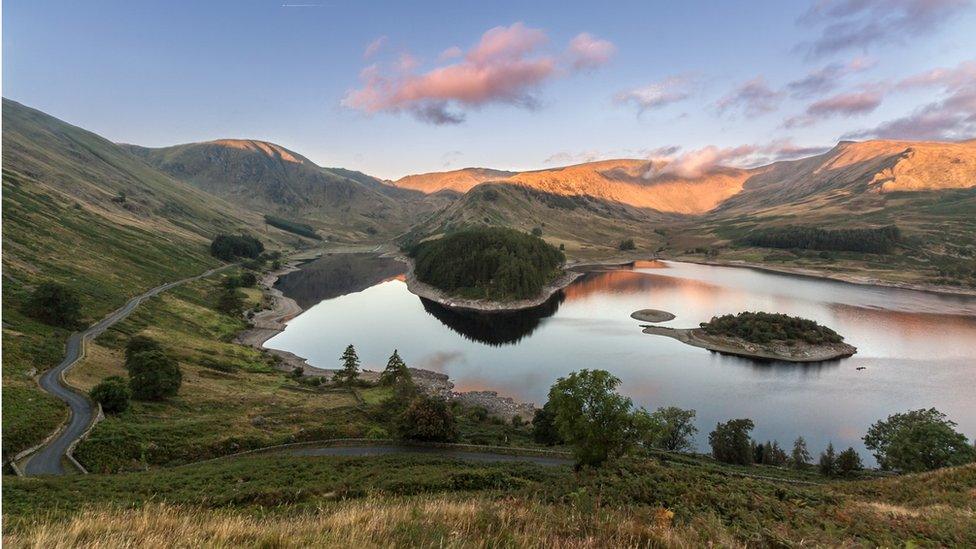
The Haweswater reserve is managed by the RSPB and United Utilities

Follow BBC North East & Cumbria on Facebook, external, X (formerly Twitter), , externaland Instagram, external. Send your story ideas to northeastandcumbria@bbc.co.uk, external.
Related topics
- Published12 July 2023
- Published5 April 2023
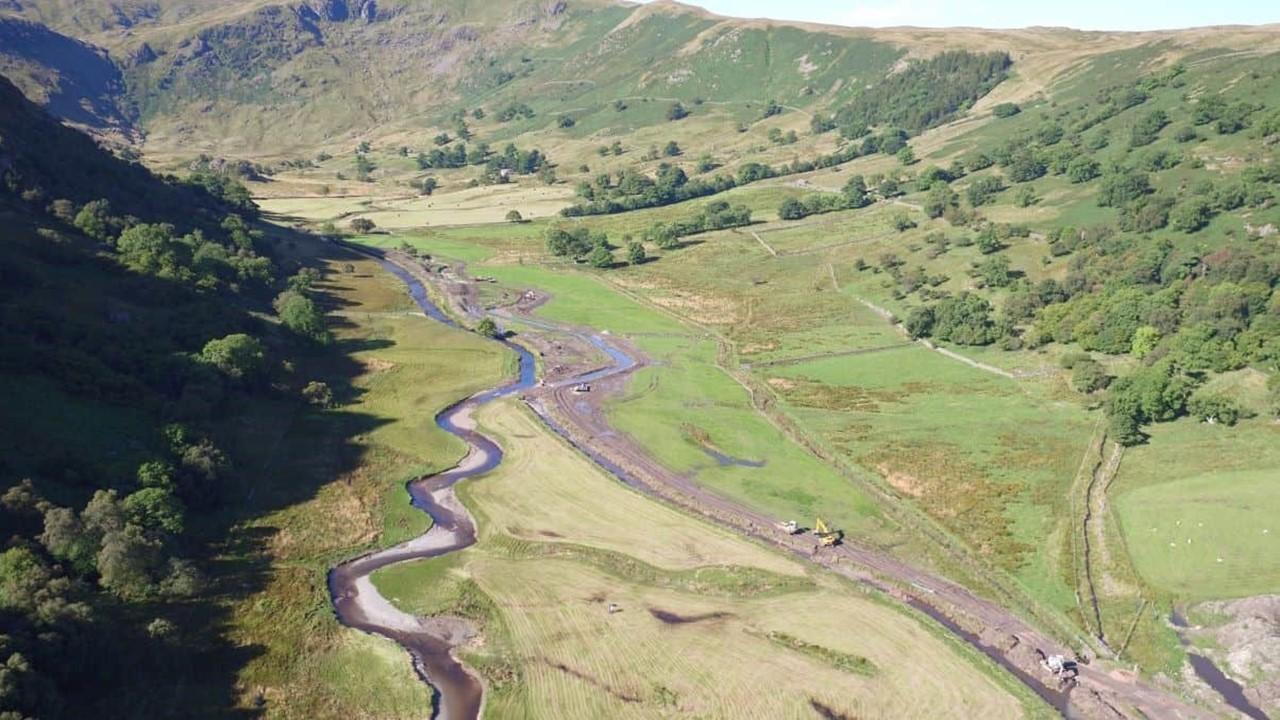
- Published19 April 2012
